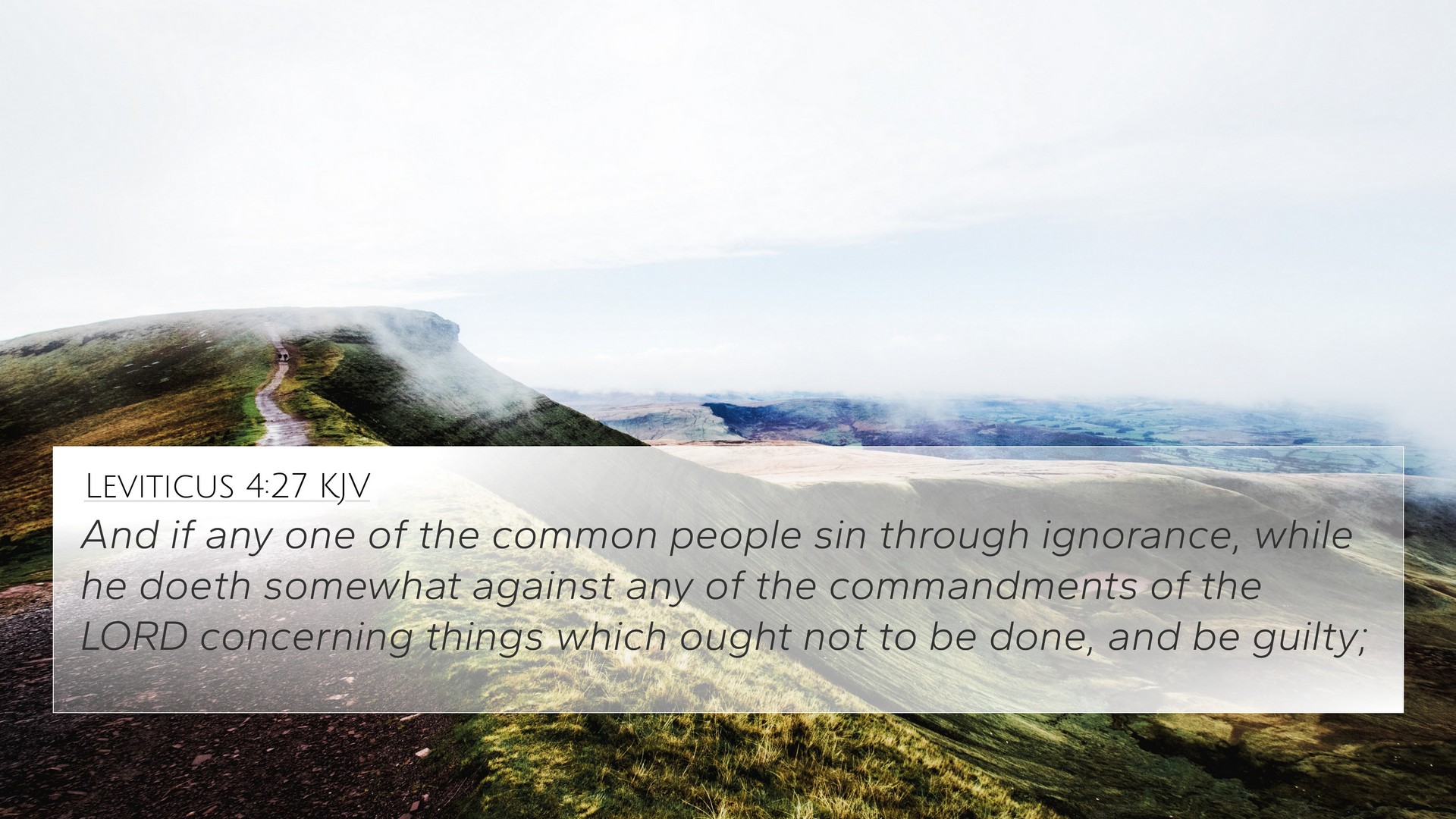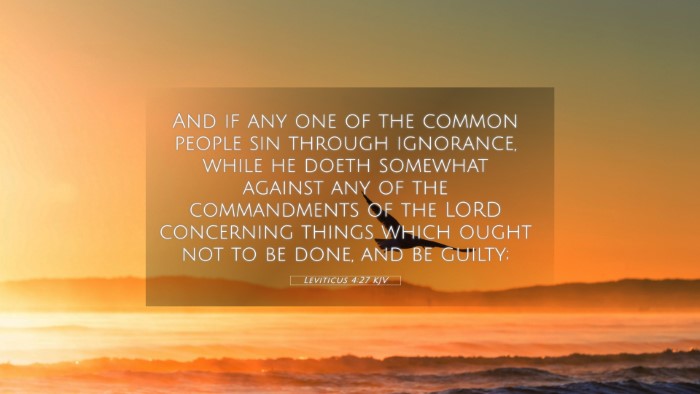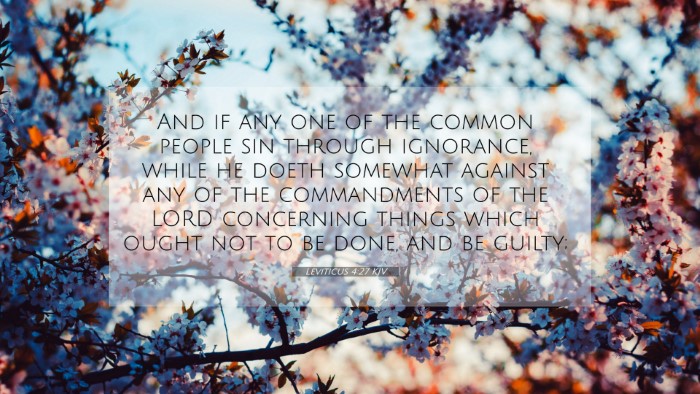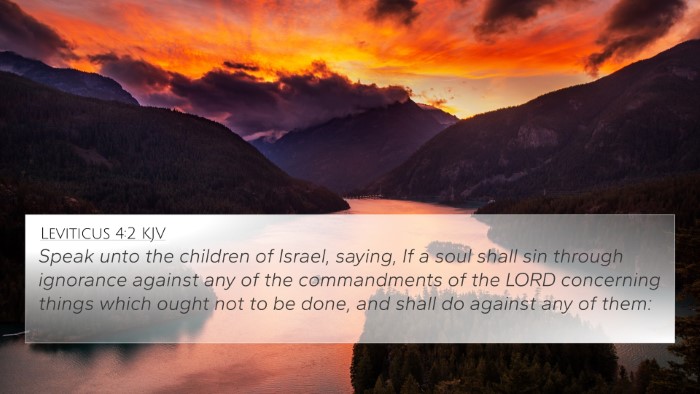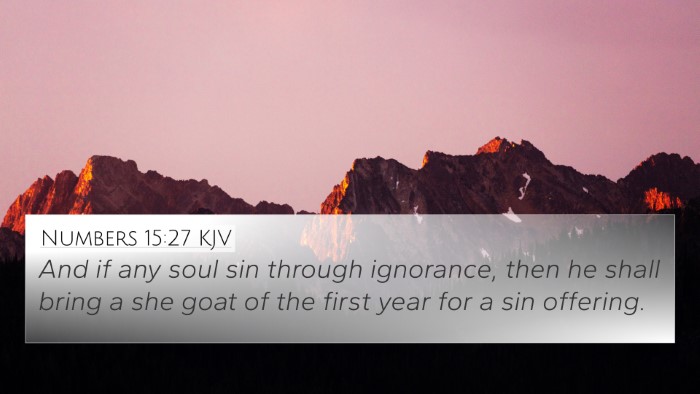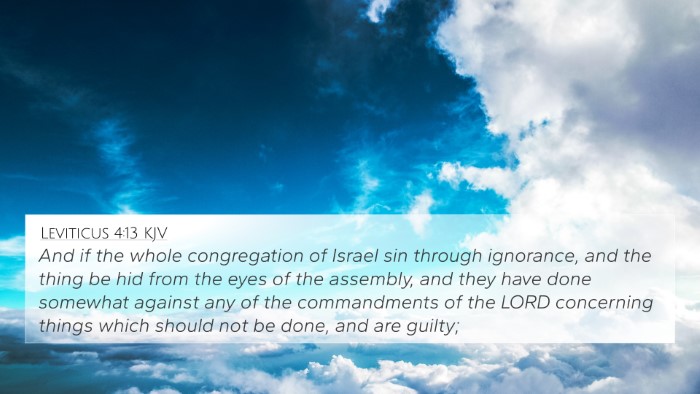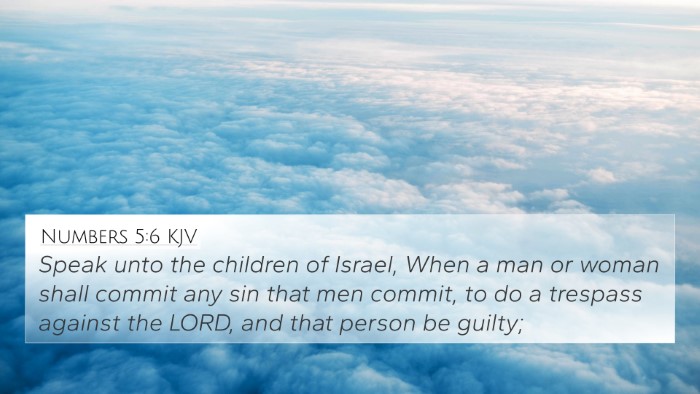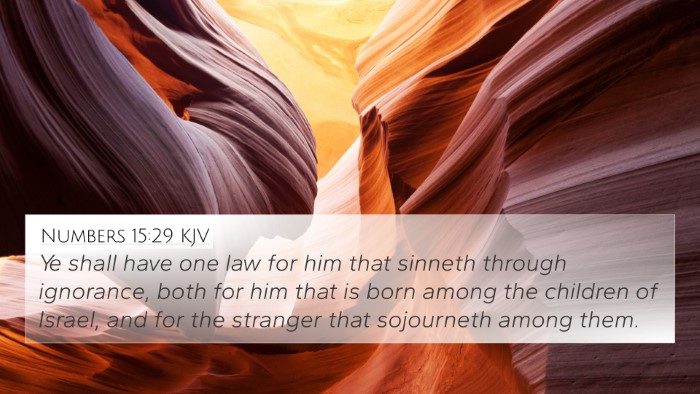Understanding Leviticus 4:27
Leviticus 4:27 addresses the context of sin offerings specifically for common people, emphasizing the necessity of atonement for sins committed unwittingly. This verse is significant in illustrating the compassionate nature of God's law, as it provides a means for reconciliation even for those who might not be aware of their wrongdoing.
In exploring this verse, several public domain commentaries provide valuable insights.
Matthew Henry notes that sin, even when unintentional, still requires atonement, highlighting God's desire for holiness among His people. He emphasizes that all sin is serious in God's eyes, and the provision for sacrifice ensures that individuals can seek forgiveness and restoration.
Albert Barnes elaborates on the concept that God requires His people to be conscious of their actions. He notes that even accidental sins do not exempt one from the need for atonement, thereby encouraging a mindfulness in everyday conduct. Barnes highlights the grace of God in providing a system of sacrifices that allows for atonement, reinforcing the importance of maintaining a right relationship with God.
Adam Clarke delves deeper into the sacrificial aspect of the verse, providing a commentary on what specific offerings may be required for atonement. Clarke emphasizes the importance of offering a sacrifice that is proportionate to the sin committed, thereby promoting fairness in God's justice system.
Key Insights from Commentaries
- Sin's Seriousness: All forms of sin, even those committed unknowingly, require acknowledgment and atonement.
- Mindfulness: Believers are encouraged to maintain awareness of their actions to uphold their relationship with God.
- Atonement System: God provides a means of grace through sacrifices, illustrating His mercy toward humanity.
- Nature of Sacrifice: The type of sacrifice required can indicate the severity of the sin committed.
- Community Responsibility: The process demonstrates that individuals within a community are linked in their spiritual health and obligations.
Bible Cross References
Leviticus 4:27 is linked to several other scripture passages that provide a deeper understanding of themes of sin, atonement, and God’s mercy:
- Leviticus 5:1-13: Discusses various offerings based on the type of sin committed.
- Hebrews 9:22: Indicates that without the shedding of blood, there is no remission of sins.
- Isaiah 53:6: Prophetic mention of the significance of bearing the sins of many.
- Romans 3:23: All have sinned and fall short of the glory of God, reinforcing the universality of sin.
- 1 John 1:9: Offers assurance that if we confess our sins, He is faithful to forgive us.
- John 1:29: John the Baptist refers to Jesus as the Lamb of God who takes away the sin of the world.
- Psalm 51:17: God desires a broken spirit and a contrite heart as true offerings.
Thematic Connections
This verse serves as a bridge to multiple themes within the Bible. It links to the overarching narrative of God’s grace in providing pathways for redemption. By emphasizing that unintentional sins still invoke a need for atonement, the verse informs the broader theological dialogue on sin, forgiveness, and the nature of God’s justice.
Understanding Leviticus 4:27 in the context of these related verses encourages a comparison and analysis that reveals the consistency of God's message throughout the scriptures. It affirms the permanence of God's requirements for atonement while showcasing His loving provision for His people.
Tools and Resources for Cross-Referencing Biblical Texts
For those looking to delve deeper into the study of Leviticus 4:27 and its connections, there are various tools and resources available for effective cross-referencing:
- Bible Concordance: A reference tool that lists words and phrases from the Bible along with their scriptural locations.
- Bible Cross-Reference Guide: A compilation of verses that relate to specific themes or topics.
- Cross-Reference Bible Study: A method of studying scriptures that focuses on linking related verses for deeper understanding.
- Bible Reference Resources: Collections of tools for exploring interconnected passages and themes.
- Bible Chain References: A method of connecting verses based on themes or subjects, providing a pathway for study.
- Cross-Referencing Bible Study Methods: Structured approaches to explore the links between different scriptures.
Conclusion
Leviticus 4:27, with its profound implications for understanding sin and the provision for atonement, offers rich material for study through the lens of cross-referencing. By examining this verse within the broader tapestry of biblical scripture, one can gain deeper insights into God’s character, the nature of sin, and the need for reconciliation.
For anyone engaged in personal study, sermon preparation, or theological exploration, leveraging tools for Bible cross-referencing can greatly enhance understanding. The connections between Leviticus 4:27 and other scripture passages form a web of theological insight, encouraging believers to appreciate the depth of God's plan for salvation and personal holiness.
